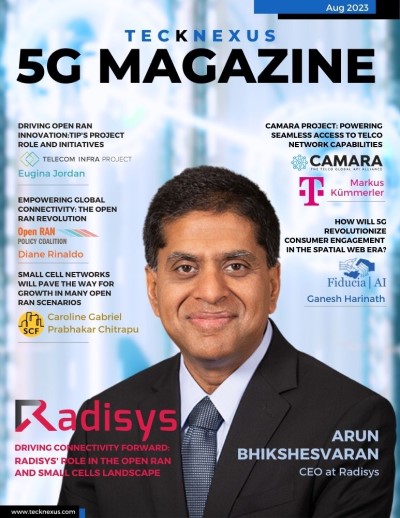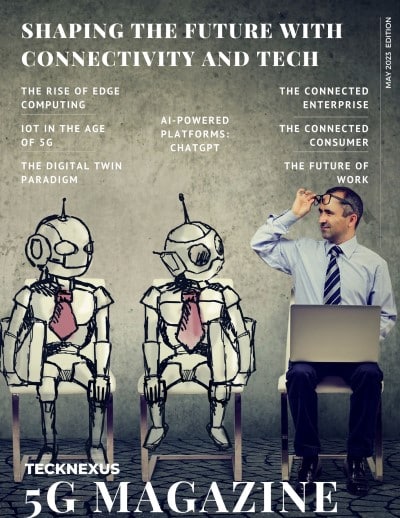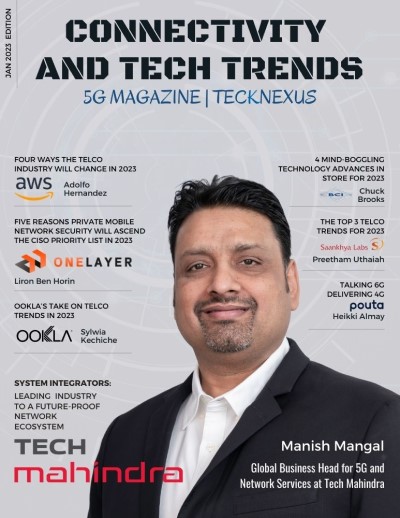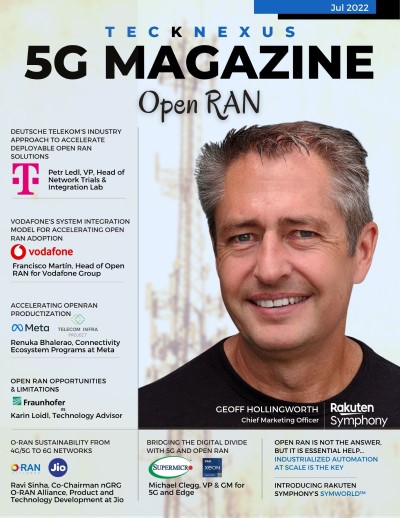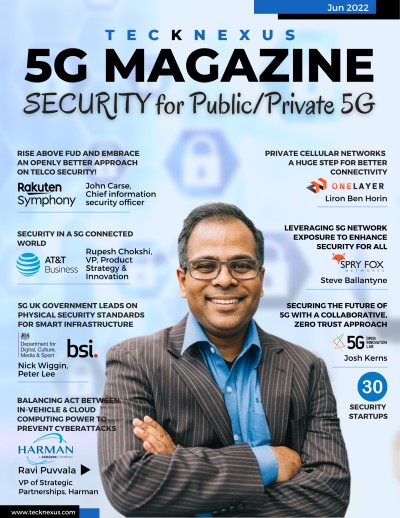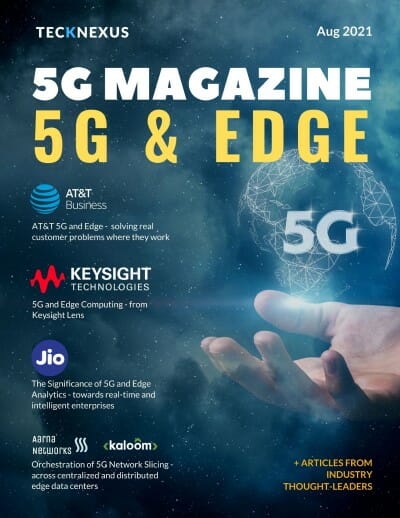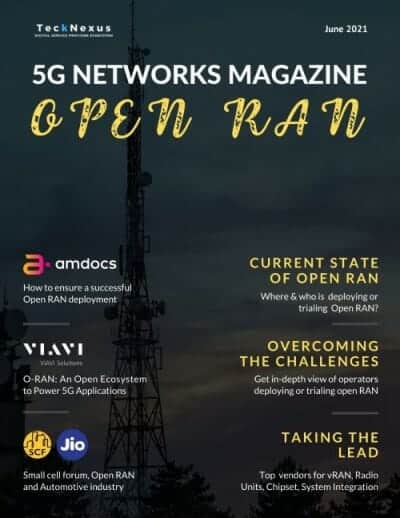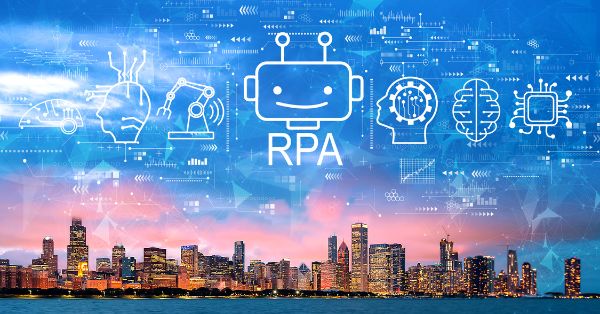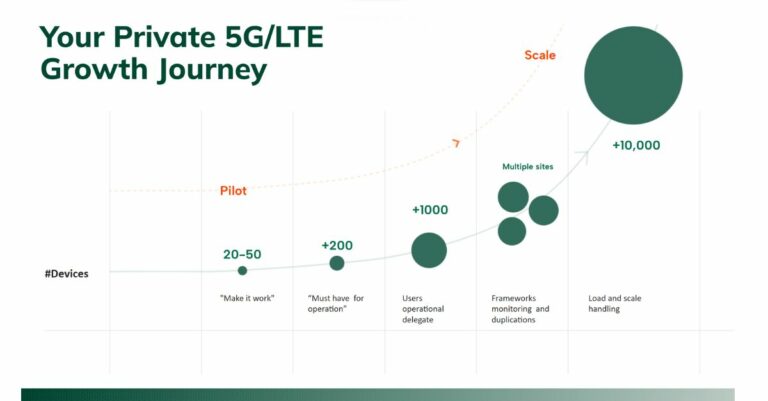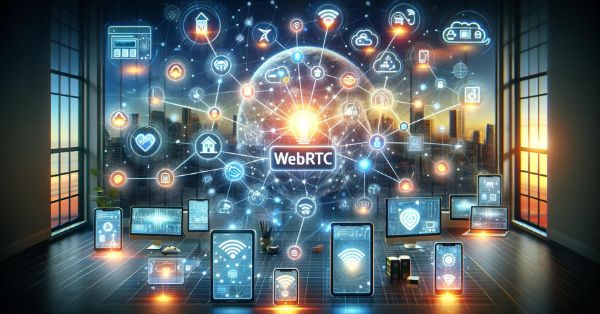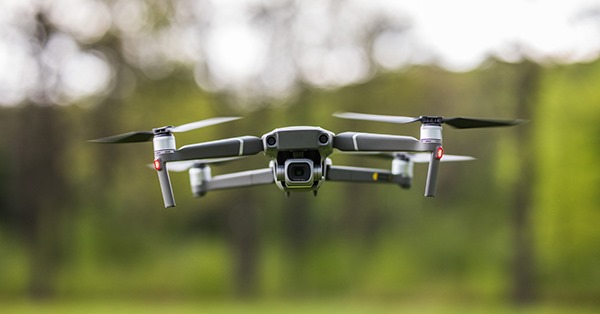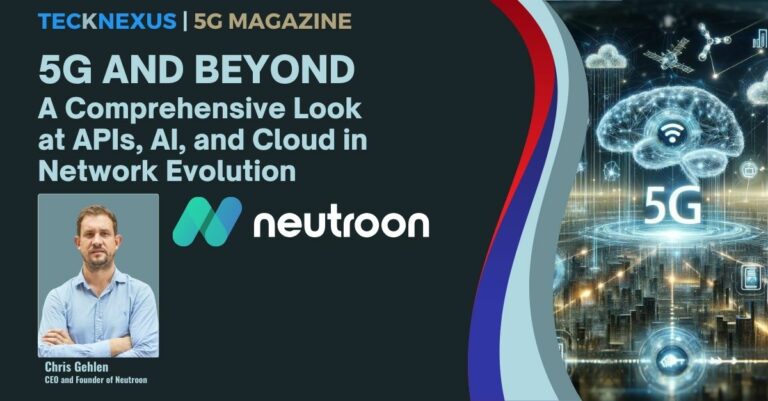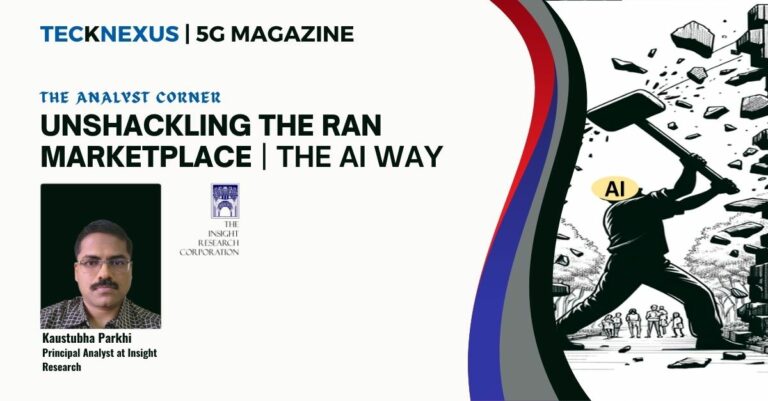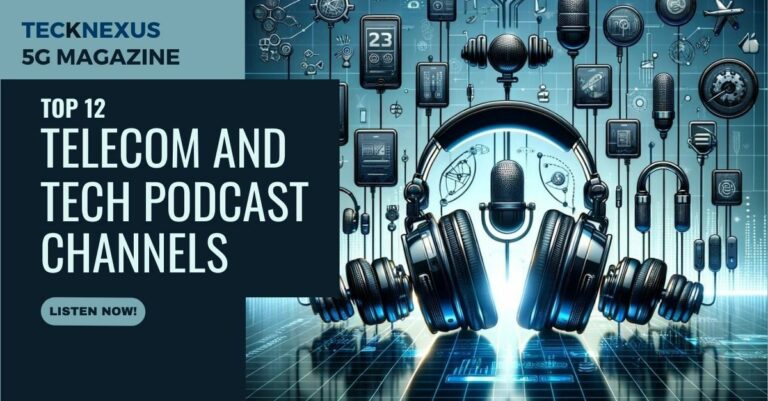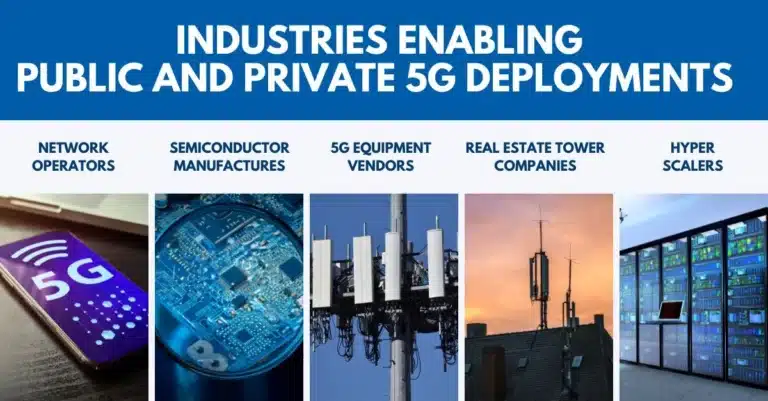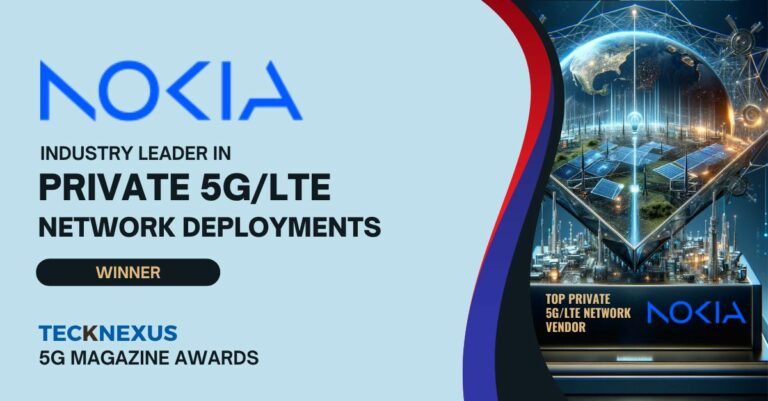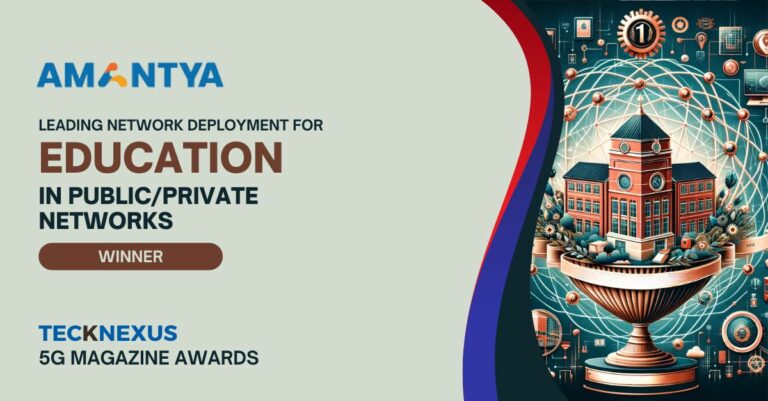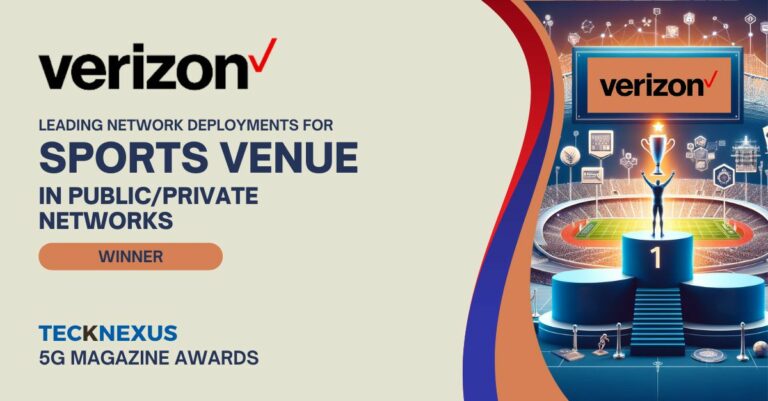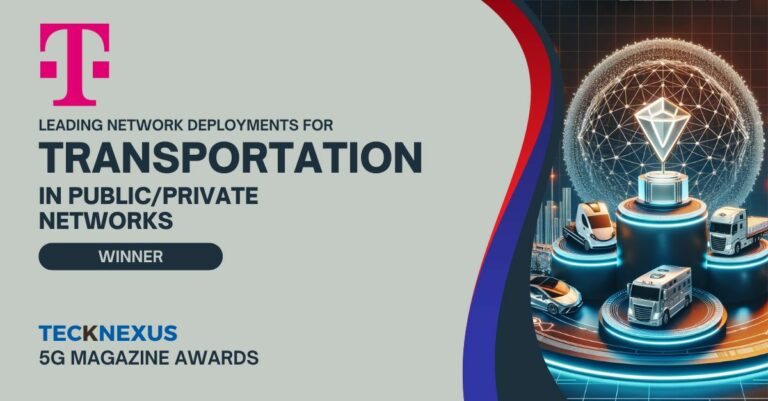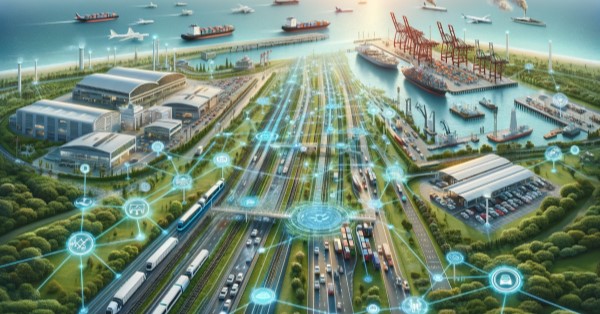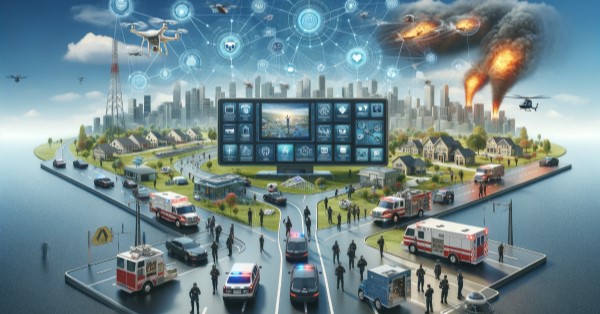Magazines and Articles
- All
- 2022 Predictions
- 2023 Predictions
- 5G and Beyond | 2024
- 5G Edge
- 5G for Manufacturing
- 5G for Transportation
- 5G Monetization
- 5G Towers
- Featured
- Foundation
- Leaders
- Open RAN | 2021
- Open RAN | 2022
- Perspective
- Private Networks | 2021
- Private Networks | 2022
- Private Networks | 2023 Awards
- Satellites and NTN
- Security
- Tech and Connectivity
- TechFusion
- Telco Cloud
Discover the pivotal role of CPQ (Configure, Price, Quote) technology in advancing customer engagement within the telecommunications industry. This article examines how CPQ tools are not just enhancing sales processes but are also critical in personalizing customer interactions to improve satisfaction and loyalty in a highly competitive sector.
In a rapidly evolving business landscape, enterprises across different sectors are increasingly turning to customized connectivity solutions to address unique challenges. This article delves into how tailored IT strategies are essential in driving business performance amidst cybersecurity risks and sector-specific regulations.
Few industries have been as fast and far-reaching as financial services in their response to the opportunities of the digital economy. Legacy connectivity models, once the cornerstone of the financial sector, now present challenges regarding speed, cost, flexibility, and security. The cracks are beginning to show. This article examines the role of Closed User Groups and the strategic shift that could disrupt banking operations.
Data Scientists are already in short supply. One of the most promising areas to make Data Scientist more productive is Generative AI. However, while Generative AI will increase the productivity of Data Scientists, it will lead to an even more serve crunch in the Data Scientist supply.
The article discusses the growing trend of customers using OTT services such as WhatsApp, Signal, etc. for voice, video, and conference calls, which impacts traditional roaming revenues earned by telecom operators. Despite this challenge, the article explores how 5G and IoT are revitalizing roaming agreements, making them relevant for operators again. It explains the basics of roaming architecture, the role of roaming agreements in ensuring seamless 5G connectivity and interoperability, and their significance in meeting quality, reliability, and security requirements. The article also highlights the continued importance of roaming agreements for operators in the evolving digital era.
What did Insight Research conclude during its coverage of AI in the RAN in its report “AI and RAN – How fast will they run?
1. AI intersects the RAN at numerous angles – the principal end-applications for AI in RAN are traffic optimization, caching, coding and energy management.
2. The impact of AI on these applications is on technical, commercial and competitive fronts.
3. There are numerous AI, ML and DL algorithms that are being used to improve the above end-applications.
4. Thanks to the penchant of AI in dealing with complexity, each of these end-applications will enjoy high CAGRs.
5. AI has democratized the RAN vendor landscape
1. AI intersects the RAN at numerous angles – the principal end-applications for AI in RAN are traffic optimization, caching, coding and energy management.
2. The impact of AI on these applications is on technical, commercial and competitive fronts.
3. There are numerous AI, ML and DL algorithms that are being used to improve the above end-applications.
4. Thanks to the penchant of AI in dealing with complexity, each of these end-applications will enjoy high CAGRs.
5. AI has democratized the RAN vendor landscape
Combining Site Reliability Engineering (SRE) and DevOps methodologies enhances incident response strategies, ensuring systems are both robust and agile. This approach aids in minimizing downtime, streamlining processes, and securing customer trust by effectively managing and mitigating incidents with a focus on continuous improvement.
In the evolving landscape of technology, the fusion of cloud computing and DevOps represents a significant shift, emphasizing the need for stringent data privacy measures. As organizations navigate this integration, addressing data protection becomes paramount, involving challenges such as access controls, encryption, and vulnerability monitoring. This article delves into the complexities of safeguarding sensitive information amidst the dynamic synergy of cloud services and DevOps methodologies, offering insights on developing robust security frameworks to prioritize data privacy.
Explore how RPA revolutionizes FinTech with streamlined processes & improved efficiency. Dive into the future of financial automation now.
The evolving landscape of private 5G/LTE networks highlights a pivotal shift towards operational networks driven by autonomous operations. This transition promises enhanced flexibility, security, and support for dynamic operational needs, crucial for the growth and scalability of private cellular networks.
- 5G, AI, API, Automation, IoT
This article delves into the role of Generative AI (GenAI) within the telecom industry. It highlights GenAI’s capabilities in enhancing customer interactions, streamlining network operations, and fortifying security protocols.We uncover the extensive benefits and emerging applications of GenAI, underscoring its transformative potential in redefining telecom services and customer engagement.
The article delves into the intricate process of executing a private network Proof of Concept, emphasizing the transformative impact on industrial connectivity and the evolution from initial skepticism to rapid deployment and optimization.
WebRTC, developed by Google, is transforming IoT by offering secure, low-latency communication across devices without needing specialized plugins. Its adaptability across browsers and systems, coupled with its direct, peer-to-peer architecture, makes it a pivotal force in the IoT evolution.
MWC 2024 unveils AI innovations, shaping industries worldwide. Explore collaborative initiatives, ethical AI deployment and trends.
Drones equipped with intelligent software provide a faster, more convenient, cost-effective, and expansive approach to tackling real-world challenges. With GenAI at the helm, these drones possess an unprecedented level of adaptability and decision-making prowess. As we continue to push the boundaries of innovation, the era of intelligent drones promises to unlock limitless opportunities for exploration, discovery, and societal advancement.
Explore how Sweden leads in GNSS-independent solutions for secure, reliable national time services in 5G networks, featuring key players like PTS and Netnod
Explore the evolving world of 5G: The roles of SaaS, APIs, AI, and Cloud Platforms in shaping the future of private network management.
Explore how eSIM impacts global connectivity, offering flexibility, security, and eco-friendly solutions for telecom.
Explore the pivotal role of DSPs in 5G network security, addressing the challenges and strategies for a secure digital future in this comprehensive guide.
Explore how embedded vehicle data enhances fleet management with enhanced efficiency, AI integration, and improved safety standards.
AI means many things to many people. Under the radar however, AI is emerging as the change agent in the RAN marketplace. Through direct and indirect means, AI and ML technologies are injecting diversity into the RAN vendor landscape. AI is not new to RAN. What is new is the combination of AI and RAN-disaggregation initiatives such as Open RAN, SDN and NFV. Established leaders, companies with telecom pedigree, consulting majors and startups are some of the notable stakeholders looking to leverage AI in the RAN. As a consequence, there is a very real probability that cellular operators will have real choices in their RAN design and deployment endeavors.
Explore Top 10 Telco and Tech Podcasts for industry insights, trends, and perspectives from industry leaders.
Uncover how satellites are redefining the role of traditional cell towers, enhancing mobile communication, and bridging the gap in global connectivity.
- 5G, API, Devices, FWA, Sustainability
Explore how 5G and Fixed Wireless Access (FWA) are transforming high-speed internet connectivity, addressing capacity crunch challenges.
Investors seeking to maximize their profits from the potential of 5G should consider a multi-pronged approach and invest in companies that provide 5G network equipment, tower infrastructure, semiconductors, and hyperscalers as well as 5G mobile network operators. Here are the top companies across the sectors that are leading global public/private network rollouts.
Explore Celona and OneLayer’s private network offerings and deployments in 5G Magazine’s spotlight on Rising Stars in Private Networks.
Explore Nokia’s leadership in private 5G/LTE networks, showcasing a global reach with over 500 enterprise customers and 1500+ mission-critical networks across industries like healthcare, manufacturing, and more.
Discover OneLayer’s role in enhancing enterprise networks with enhanced security and efficiency for 5G/LTE, reducing cybersecurity costs by 80%.
Explore how Cox’s MOCN Neutral Host revolutionizes indoor cellular connectivity in education and healthcare, offering robust, cost-effective solutions.
Discover how Cox’s private networks are transforming public safety in Las Vegas, offering advanced connectivity and smart city solutions.
Explore how Amantya Technologies is reshaping education with private 5G networks, enhancing learning experiences & bridging digital divides.
Explore how Verizon’s 5G solutions are enhancing sports and event venues, offering unprecedented connectivity and fan experiences.
Discover how Celona’s private 5G networks enhanced speed and efficiency at a leading luxury car manufacturer plant.
- 5G, AI, AR, Edge/MEC, IoT, Private Networks, Security, VR
- HealthCare
Explore how AT&T is transforming healthcare with 5G technology, enhancing patient care and medical research.
Explore how Radisys and its industry partners are enhancing energy efficiency and sustainability in 5G networks, focusing on Open RAN solutions.
Discover how 5G analytics, through NWDAF, enhances telecom operations, enabling cost reduction and new revenue channels.
Explore how Cumucore leads the shift in factory automation with innovative 5GLAN and TSN technologies, enhancing efficiency and safety.
Explore Private Networks characterstics, benefits, ecosystem players and the top industry verticals leveraging private networks.
Explore how John Deere is systematically adopting private 5G networks, addressing challenges arising from rapid growth of industrial IoT and network limitations.
Explore how Deutsche Telekom shapes transportation with 5G – from teleoperated shuttles to automated driving and connected vehicle tech.
Whether you’re a novice or an expert in cloud computing, the AWS Re: Invent conference offers insightful and useful knowledge. The conference is a event for anybody wishing to stay up to date on the newest trends and advancements in cloud computing, with its focus on innovation, networking, and education.
Discover the role of 5G in autonomous driving, covering technology, global trends, innovations, and regulatory insights.
Explore the impact of 5G in healthcare. Discover how 5G technology enhances patient care, increases efficiency, and drives innovation in healthcare.
Explore telco industry’s journey towards sustainability, focusing on green networks and responsible corporate strategies.
Explore how 5G is revolutionizing sports with smart stadiums, improved fan experiences, operational efficiencies, and innovative marketing strategies.
Explore how 5G is transforming education and creating smart campuses, enhancing learning experiences and operations.
Explore the transformative impact of 5G on public safety, including enhanced communication, innovative uses, and future prospects.





